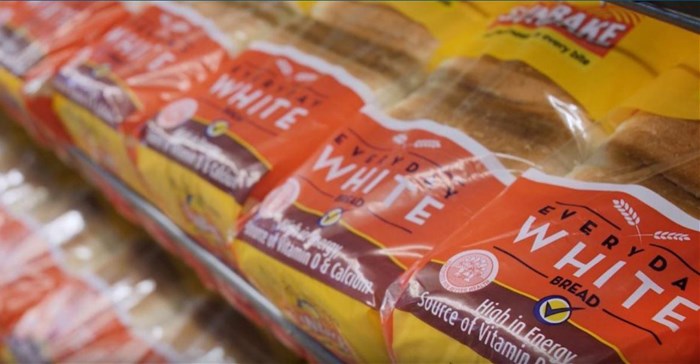
Related
Top stories

Energy & Mining#MiningIndaba: How GenAI is reinventing mine maintenance in South Africa
Maroefah Smith 2 hours



ICTRevolutionary spectrum sharing tech set to transform SA's rural internet access
Paul Colmer 55 minutes


More news










10x20x30 is led by some of the world’s largest food retailers and providers, including Pick n Pay, who have each committed to engaging at least of their 20 suppliers to halve food loss and waste by 2030, in line with the United Nations’ Sustainable Development Goal (SDG) Target 12.3.
The companies behind 10x20x30 include Malaysia-based Aeon, Netherlands-based Ahold Delhaize, France-based Carrefour, multinational IkeaFood, USA-based Kroger, Germany-based Metro AG, Turkey-based Migros, South Africa-based Pick n Pay, and the multinational Savola Group, Sodexo, Tesco and Walmart.
Between them they comprise six of the world’s largest food retailers, the second largest food service provider, and leading food retailers in the Middle and Far Aast and in southern Africa – representing more than 80 countries collectively.
RCL Foods said in it's "honoured to be participating in this groundbreaking world initiative in partnership with Pick n Pay".
As one of South Africa’s largest food manufacturers, it supplies the retailer with a range of culinary and grocery products including the well-known Rainbow, Simply Chicken and Farmer Brown chicken brands, Selati sugar, Supreme flour, Sunbake bread, Nola mayonnaise, Pieman’s Pies, Ouma rusks, Yum Yum peanut butter, Number One mageu, A1 and Five Star maize meal and Monati sorghum porridge, as well as the Bobtail, Catmor, Canine Cuisine and Feline Cuisine pet food brands.
It also supplies a number of private label brands in various food categories.
“We have been on a journey to drive sustainable business for some time already, and nourishing people and sustaining resources are two of the pillars of our sustainability framework. By participating in the 10X20X30 initiative, we are committing to reduce food loss and waste in our operations by 50%, to measure and publish our food loss and waste inventories, and to create actionable strategies to reduce this waste.
"We look forward to sharing key learnings with our fellow participants and the World Resources Institute, and to taking our stakeholders on this necessary and rewarding journey with us,” said RCL Foods CEO Miles Dally.
Each year, a third of all food produced in the world ends up being discarded by retailers and consumers, while a significant amount is also lost across the supply chain – especially during harvesting and transportation. This has massive economic, environmental, and food security impacts. Globally, it amounts to throwing away $940bn annually, while contributing needlessly to 8% of global greenhouse gas emissions.
Most concerning of all is the 1 in 9 people worldwide – and even more in South Africa – who remain undernourished despite there being more than enough food to go around. Young children are particularly at risk, with 27% suffering from stunting which has permanent consequences for their future health, learning and economic potential.
The urgency of addressing food loss and waste has been further exacerbated by the Covid-19 pandemic which has led to even greater economic hardship for South African consumers – while causing significant losses at farm level due to farmers not being able to get their produce to markets, and a decline in demand due to lockdown restrictions.
10x20x30 was publicly launched at the 2019 annual Food Waste Summit hosted by Champions 12.3, a voluntary coalition of executives from business, government and civil society that is committed to raising ambition and motivating action to achieve the Sustainable Development Goal (SDG) Target 12.3 – which calls for a 50% reduction in food loss and waste worldwide by 2030.
The coalition inspired and helped develop the 10x20x30 initiative, with World Resources Institute as its co-secretariat and acting as lead provider of technical assistance to all participants in the initiative.
“Reducing the more than 1 billion tonnes of food that’s lost or wasted each year would bring big social, environmental and economic benefits – but bringing these benefits to scale requires action across the entire supply chain,” said Dr Andrew Steer, president and CEO of the World Resources Institute. “I’m encouraged to see so many leading food retailers and suppliers committing to bold action. It’s exactly what the world needs to achieve the target of 50% reduction by 2030.”
10x20x30 dovetails with initiatives already under way at RCL Foods to reduce food waste, including sending near-to-expiry food to a social partner, FoodForward SA – which distributes it to charities feeding the hungry – and diverting some of its food waste from landfill sites through partnerships with biofuels manufacturers and agriprotein producers. Alongside this, efficiencies at all levels of the supply chain play a key role in minimising the potential for food waste.
“In line with our passion to provide More Food to More People, More Often, we are committed to doing whatever we can to increase food provision and tackle food waste for the sake of a more sustainable future,” Dally concluded.